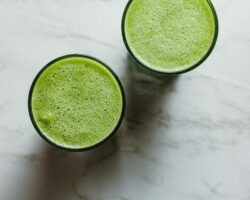What is tuna good for?
First and foremost, tuna is a rich source of high-quality protein. It contains all the essential amino acids and is perfectly absorbed by the body. Since protein is the main building material of our body, its deficiency may lead to problems with all systems – from cardiovascular to musculoskeletal ones. Tuna contains 21g of protein per 100g of product, which means that just one serving can provide you with almost a third of your daily allowance.
At the same time, tuna is completely free of carbohydrates and has almost no fat (less than 1g per 100g.), which makes it the ideal product for those who are actively engaged in sports or just to keep track of the number of calories consumed. Tuna is rich in B vitamins and vitamin D, which is essential for healthy skin and bones.
How salmon is useful?
Salmon is much more fatty than tuna, but the fats in it are healthy. The omega-3 fatty acids found in salmon are essential for your heart and blood vessels. They significantly reduce the levels of low-density lipoprotein (“bad” cholesterol) in the body, and stimulate the production of “good” cholesterol. In addition, omega-3s strengthen the heart muscle and normalize the entire cardiovascular system.
In addition, salmon is rich in antioxidants carotenoids, which give it its bright colour (tuna owes its bright colour to other compounds). They protect against free radical damage, prevent inflammatory processes, slow down aging, prevent wrinkles and protect skin cells from the harmful effects of ultraviolet rays.
The vitamin content of salmon is also higher than that of tuna. It is rich in vitamins B6, B12, D and E. However, the caloric value of this species of fish is much higher, so you should be careful when consuming it. Remember that even the healthiest foods can cause weight gain if they do not meet your daily calorie allowance.
Tuna or salmon: which is healthier?
There is no definite answer to this question as the two products are not interchangeable. Ideally, if both tuna and salmon are to your liking, a healthy diet should include them both. Tuna provides the body with a huge portion of protein it needs (which salmon cannot boast of) and is great for satiety with a minimum of calories. Salmon, for all its abundance of nutrients, is quite fat and calorie-dense and should be eaten with care.






